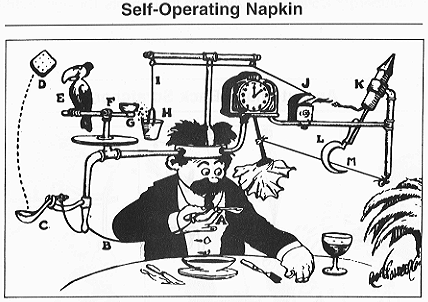I've been thinking about 'rights' as in "constiutional rights" in the context of mask orders.
Leaving aside the reasonableness of mask orders and the long history of the courts upholding public health measures, I've been wondering in particular about why people might1 claim there is (or should be) a 'Right' to not wear a mask in a retail establishment.
And I think we should see it, at least in part, as pedictable fallout of a long-running campain from the political left.
I'll explain.
Originalism
It is a common argument on the political right (or at least the political right as it was in my younger days) that 'rights' are something that the people have against the government. That's basically the content of the Bill of Rights, after all: things the government may not do to "the people" or to individual people.2 In that view restraints may be imposed on people vis a vis other people by way of laws, but those are different from and limited by 'rights'.
Plenty of newfangled models
But here's the thing. For more than my entire lifetime there have been 'rights' that control how a person may interact with another person.3 A business may not discriminate against a person on the basis of a moderately long list of things, right? Nor is this limited to corporate entities (which recieve privileges from the state), but also applies to a person who is simply doing business with their own money. Similarly a business (i.e. even a person) generally may not discriminate in hiring against a person with a recognized disability nor in most cases forbid some service animals.
Now, I think a pedantic examination would suggest that these aren't 'rights', but rather requirements of the Civil Rights Act in the former case and the American's With Disabilities act in the latter (and various pieces of legislation that have followed) and as such are "laws".4 But the narrative I see in the popular press uses 'rights' or 'right' on a regular basis. To the extent that the descriptivists have won the argument over the meaning of words, that's a change in the understanding of what a 'Right' is from the beginning of the republic.
Not that am I terribly worked up about it. I'm strongly in favor of treating people decently whatever their color, gender, religion, etc and even ::shudder:: poltical beliefs or favorite college football team.5 And I recognize that a coordinated campaign of "individual" intolerance by the majority is completely asymmetric and every bit as oppresive as legal inequality,6 so allowing people to freely discrimiante in their public lives would be little if any movement toward equality. Nor do I think it is reasonable to say to the members of an oppresed minority "Well, I think you're right about this, but you really need to suffer for another couple of generation so that we can have a smoother transition with less friction", which seems to be the alternative.
But it sets the rhetorical stage for the idea that people can have 'rights' to deploy against other people
Right 'Rights' right back
The political right has been getting beat up using this language for roughly sixty years, so it shuoldn't come as a surprise to find that they have decided to retailiate in kind. In this the left have won the cultual wars: the rhetorical weapons of choice have become those the left selected way back before I was born.
1 I say "might" because I am just guessing.
2 And we'll just not talk about how incredibly wonky it is to have a system that on one hand holds up these shining ideals that people are in many ways more important than governments and on the other lets people be held as property. Denial is not just a big river in Egypt, after all, and even people who try to be rational and principled can suffer from it in startlingly large ways.
3 Here I'm attributing existance to positions held up by the courts and by the Supreme Court in particular. You're welcome to believe (as I do) that some of these are in error, but they are the things that will be enforced for good or for ill.
4 Generally the rulings are that the governement may in fact make such a requirement in law.
5 "I don't have anything against Buckeyes, but would you want your sibling to marry one?"
6 Even if we posit a lack of organized and legally unaddressed violence and intimidation ala Jim Crow (and even if you can belive it starts that way how long do you think it would last in the face of any resistance?).

